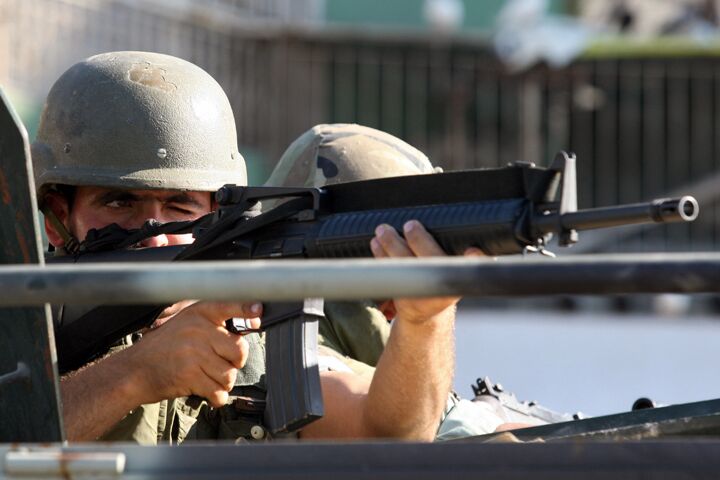
Lebanon Still in Chaos Despite Political Agreement
Fighting between rival Sunnis and Shiites in Lebanon this week killed 9 and wounded over 50. In the worst violence in Lebanon since Hezbollah took over the streets of Beirut in May, an Alawite sect loyal to the Hezbollah-led opposition clashed with Sunni supporters of the ruling majority. Machine guns, mortars and rocket-propelled grenades were used in the fighting, and dozens of buildings were burned and damaged.
The violence in the streets reflects the continuing political chaos in the country. The national unity government that was supposed to form as a result of the Doha agreement last month has not yet been created because of disagreements over ministerial portfolios. Hezbollah and its Shiite partner are squabbling with the Western-backed coalition over who gets what cabinet positions in the new government.
The political agreement that was hailed as averting civil war has not only perpetuated the political crisis in the country, but has also failed to stop the violence. “Some observers,” writes the Christian Science Monitor, “worry that Lebanon, like Iraq, could become a new battleground between Sunni and Shiite extremists.”
Following the signing of the Doha agreement, we wrote that the political agreement would only bring further instability to Lebanon. That is precisely what Lebanon is facing. The army has been unable—or unwilling—to prevent the clashes. Some say the country is on the verge of civil war.
Iranians, reportedly, are fighting alongside the Alawites, and Hezbollah is arming them. “The first one we killed in the fighting was a Shiite Iranian,” said a resident involved in the fighting. “They only fought hard because the Iranians were with them.”
Hezbollah and Iran clearly will continue to stir up trouble on the ground in Lebanon to get their way. As we have often pointed out, the cause of the terrorist problem that is causing instability not only in Lebanon but in Israel, Iraq and elsewhere in the Middle East, is Iran. Read The King of the South for more on Tehran’s rising power.
